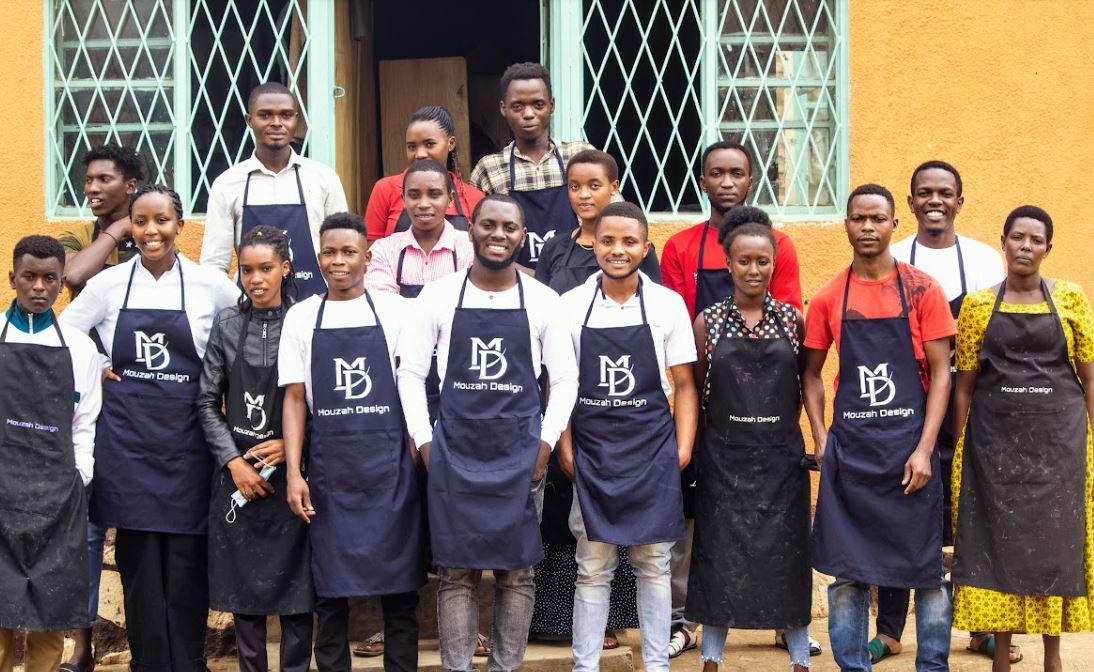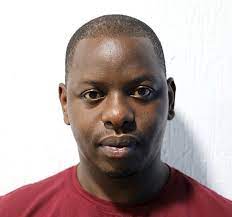

Jean-Luc Umuhuza Hirwa, a 22-year-old young entrepreneur-who is currently a 4th year student at University of Rwanda-College of Science and Technology-and his colleague have already created a business of making shoes, bags, wallets and belts.
The entrepreneurs recently won a Rwf1.5 million prize from YouthConnect Awards at Provincial level.
Hirwa who is the Co-founder and Managing Director of the company called Mouzah Design Ltd told Doing Business that the journey began in high school when they started to ponder how to create business.
"There is what I tried while in high school but failed. But in 2019, at university, my colleague joined me and decided to create a business using the savings from our monthly stipends that are given to university students. Each student was receiving Rwf35,000 per month as living allowances,” he said.
The students who have a shoemaking workshop in Gikondo, Kigali city, started with Rwf63,000 as capital to buy the first shoe-making machine.
"The machine was second-hand and very old but it helped us a lot,” Hirwa said.
After spending the Rwf63,000 he said they spent part of the following month’s allowances to buy a polishing machine and other equipment.
"We had to dedicate part of our time after class and during weekends to make some products because we were full-time students. We could make between 40 and 60 pairs of shoes per month,” he said, adding they are gradually increasing production to compete with those imported.
Thanks to the second-hand shoe making machine, he said, they managed to buy an electric machine after three months and hired another person to help increase production capacity.
Hirwa said that when they started production the biggest challenge they faced was to get clients for the first shoes they made.
"We had to visit shop to shop talking to different retailers and wholesalers to forge partnership. At first some couldn’t trust us and we would leave a sample of five shoes to convince them, then they would order for more the next few days,” he said.
The production capacity has increased from 150 pairs of shoes maximum in 2019 shoes per month to 3,000 pairs of shoes currently.
"We are inspired by fashion, art and creativity which allows us to make quality and affordable footwear,” he noted.


Making shoes from used materials
Hirwa told Doing Business that he also possesses skills in art drawing, artistic design, software development among others which enables him to produce different styles of shoes, bags, wallets and belts from leather, cloths, Kitenge, old tyres and others.
"We are playing a role in environmental conservation to satisfy UN sustainable development goal 13 by using recycled tyres as shoe outsoles and we are using plastic containers to make shoe and shoe outsoles,” he said.
The entrepreneurs said they have a goal to expand the business in Rwanda and Africa to reduce imports.
"There is a gap in shoe manufacturing industries in Rwanda, where a larger number of shoes are imported from China and other countries at higher price and less quality compared to those which are locally made,” he said.
Imports of new footwear increased $15 million in 2016 to $23 million in 2019.
On the contrary, Rwanda exported $585,936 worth of footwear in 2019 showing a very big trade deficit.
"In support of the Made-in-Rwanda initiative, we aim to produce long lasting products at affordable prices. We have a vision to produce innovative and stylish shoes and other leather products which meet customers’ expectations, " he said.
Skills transfer
Hirwa said he is transferring skills and helping more youth to create their own jobs in the leather sector.
"Our team currently comprises 19 persons and we are still growing as production capacity increases. Youth unemployment is at a high rate in Rwanda. The government and different institutions are trying to reduce unemployment but more needs to be done especially by the youth themselves to create their own jobs for a better future,” he said.
The entrepreneur said that they are building the capacity of the workforce by training unemployed youth to help them to create their own businesses.
"After training the youth we employ some of them depending on their performance and market demand, while others have created their own businesses using the provided skills. They have now also provided jobs to other youth,” he said.
Training people with disabilities
The entrepreneurs have decided to create an inclusive workforce by providing skills and jobs to persons with disabilities.
"In 2008, Rwanda ratified the UN convention on the rights of Persons with disabilities.As contribution to our government in partnership with National Union of Disabilities Organizations of Rwanda, by the beginning of April we will start to train youth with disabilities in three districts,” he noted.
He added that they also offer online training and link the trainees to potential employers through an established online system.
"As part of giving back to society we also provide shoes to school children in rural area schools in order to motivate them to love Made-in-Rwanda products,” he disclosed.
Challenges and plans
According to Hirwa, the production capacity is low to be able to satisfy the market.
"The market has grown both locally and internationally and our production rate is not enough to satisfy the available market. We need to address those challenges by increasing different machines to increase production capacity in the next five years employing 150 people,” he said.
He said that the company plans to have also provided shoe making skills to more than 400 youth.
"Producing high quality products, affordable products, making strategic investments and attracting more customers could help us achieve our goal,” he said.
The team of 19 is designing and producing 3,000 pairs of shoes per month. / Photo: Dan Nsengiyumva
Their workshop in Gikondo. / Photo: Dan Nsengiyumva


